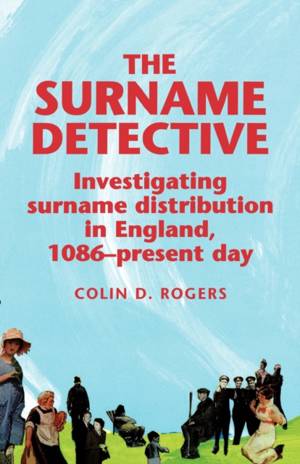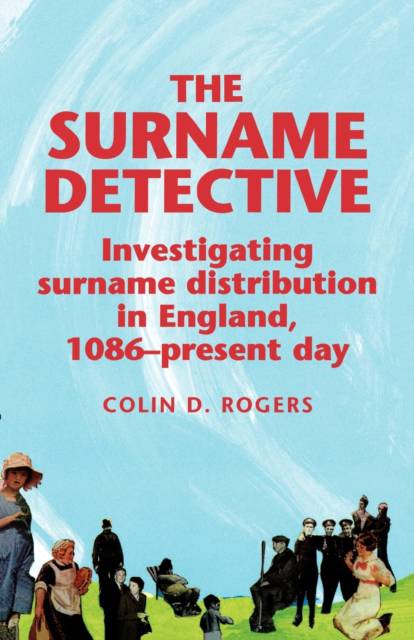
- Afhalen na 1 uur in een winkel met voorraad
- Gratis thuislevering in België vanaf € 30
- Ruim aanbod met 7 miljoen producten
- Afhalen na 1 uur in een winkel met voorraad
- Gratis thuislevering in België vanaf € 30
- Ruim aanbod met 7 miljoen producten
Zoeken
The Surname Detective
Investigating Surname Distribution in England Since 1086
Colin Rogers
Paperback | Engels
€ 48,45
+ 96 punten
Omschrijving
From the author of The Family Tree Detective, this guide provides the amateur genealogist or family historian with the skills to research the distribution and history of a surname. Colin Rogers uses a sample of 100 names, many of them common, to follow the migration of people through the centuries. Each of the 100 names is mapped since the Doomsday book in 1086. For those whose name is not among the sample, the book shows how to find out where namesakes live now, how they moved around the country through time, and how the name originated from a placename, a nickname or an occupation. Colin Rogers finishes this work by showing how the distribution of surnames can be studied irrespective of the size of the surrounding population, and reaches some interesting conclusions about which names are more reliable guides to migration since the 14th century.
Specificaties
Betrokkenen
- Auteur(s):
- Uitgeverij:
Inhoud
- Aantal bladzijden:
- 260
- Taal:
- Engels
Eigenschappen
- Productcode (EAN):
- 9780719040481
- Verschijningsdatum:
- 13/07/1995
- Uitvoering:
- Paperback
- Formaat:
- Trade paperback (VS)
- Afmetingen:
- 137 mm x 214 mm
- Gewicht:
- 308 g

Alleen bij Standaard Boekhandel
+ 96 punten op je klantenkaart van Standaard Boekhandel
Beoordelingen
We publiceren alleen reviews die voldoen aan de voorwaarden voor reviews. Bekijk onze voorwaarden voor reviews.











